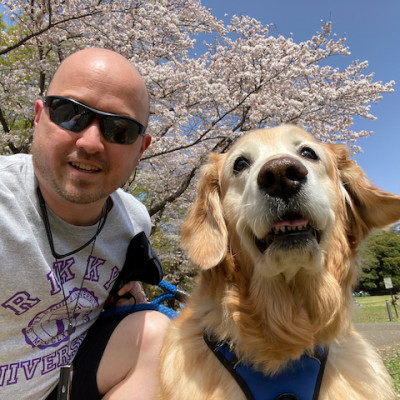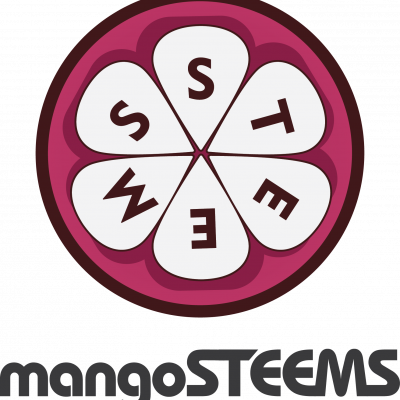Sessions / Workshop Presentation
Include practical demonstrations on how to use various tools or ideas for CALL-based language learning environments. They may include commercially or freely available tools, or in some cases individually developed materials provided there is the possibility of participants either using the tools demonstrated or developing similar tools for their own language learning environments. Length: 70 minutes
Using ZOOM to Enrich Classroom Community Rapport #1390
In the distance learning environment, fostering and nurturing classroom community has become increasingly important. Language learning takes place beyond the classroom through community engagement, interactions with peers, family, and friends. By encouraging our learners to value the importance of social and intellectual relationships, students respond positively to risk-taking, increased self-esteem and self-efficacy, develop greater cognitive performance, and so much more. ZOOM provides an online platform for students to not only interact with each other “in” the classroom but outside of it. In this workshop, I seek to offer a practical demonstration of how to effectively do this. I will introduce pre-teaching activities such as turn-taking strategies and conversation phrases and expressions. Following this, I will provide a structure to guide students in leading discussion circles through ZOOM. The workshop will end with student and teacher reflections, insights, and potential pitfalls.
Designing materials to boost language learners’ reading skills with Clilstore #1413
This workshop will present the work of the EU-funded CLIL Open Online Learning Project (www.languages.dk). Since 2018, the project team have been updating and expanding the functionality of clilstore.eu - an Open Educational Resource which serves as a repository of open access materials and an authoring tool that enables educators to create multimedia learning units combining audio, video, text, images and Web 3.0 applications. Learner autonomy is underpinned by the way the authoring software treats embedded texts, that is, verbatim typescripts of audio or audiovisual recordings are automatically linked word for word to a nexus of online dictionaries that helps boost their reading skills.
This workshop will introduce participants to the ways in which Clilstore can support Content and Language Integrated Learning (CLIL) and language learning generally. A selection of sample learning units showing how Clilstore.eu is currently being used to good effect will be presented. Participants will then be given a hands-on demonstration of how to author a new teaching unit containing: video/ audio content, transcript with all words linked to online dictionaries in over 100 languages, and embedded learning tasks. Participants will also learn how to use Clilstore's inbuilt portfolio and personal vocabulary tools. The Clilstore user interface is currently available in the following languages: Danish, English, Spanish, Irish, Scottish Gaelic and Italian.
Immersive learning with Engage, a cross-platform VR app #1415
Immersive learning has been a buzz word in the field of education for the past several years as an increasing number of affordable consumer devices and free/proprietary apps become available. Among various types of immersive learning solutions, virtual reality (VR) has gained much attention among educational technology researchers and developers worldwide. In this workshop, the presenter will show how to use Engage (https://engagevr.io/), a proprietary virtual reality app accessible on VR and non-VR devices, to create immersive learning materials for on-demand purposes and to conduct synchronous online classes. Given that VR headsets are not yet available to the majority of learners, this platform specifically designed for education can be a promising tool as it is compatible with PCs, iOS and Android mobile devices as well as major VR headsets. Although the freemium version has many features, a paid account is more beneficial for professional content creation and real-time use. The participants of this workshop are requested to download the app on their device in advance.
Will virtual classrooms flourish or wither? #1446
The author invites JALTCALL participants to a BOF (birds-of-a-feather) meeting where everybody thinks out loud in an informal setting. Data, analyses, and predictions of pre- mid- and post-pandemic virtual classrooms are scarce because the situation is developing. Before the COVID-19 pandemic, some teachers and schools chose to use virtual classrooms. During the pandemic, many teachers and schools were forced to use virtual classrooms. Soon, we hope, the pandemic ends. How widely will virtual classrooms continue to be used? Will teachers and students return to pre-pandemic format? Or will they continue to prefer virtual classes? What variables (such as the student's age, or class size, or subject matter) might affect the choice between real and virtual classes? Nobody knows what the "new normal" will be. Let us attempt to predict, in order to prepare. The author will provide objective data and subjective analyses. Members of the audience are encouraged to voice their observations and intuitions. A link to an online survey will be announced before the conference to bootstrap discussion. Outcomes of this session may be reported at JALT-2021.
Peer feedback in speaking classes using Google Forms with DocAppender #1466
Recent Studies (for example Saito, 2016) have found that in addition to conventional teacher-centred feedback, peer feedback in speaking classes can provide students with meaningful learning opportunities. However, learner reticence to provide face-to-face feedback, coupled with time constraints and the recent shift to online classes can make such feedback problematic. By using the free DocAppender plug-in for Google Forms as detailed in this hands-on presentation, attendees will be shown a way for learners to provide fast and easily accessible feedback to their peers. Using Docappander, students can type their observations on a Google Form, with this feedback being automatically sent to a Google Document, thus enabling the speaker to obtain swift reactions to their speaking performance, without the need for face-to-face spoken feedback . Attendees will firstly be shown a brief demonstration of the app. I will then show how to create a simple Google Form to send feedback to individual Google Documents assigned to students. Finally, attendees will be offered suggestions for further applications of the software beyond peer review in speaking classes. This workshop will be of particular interest to those teaching debate or presentation classes.
Designing auto-scored speaking tasks in Moodle #1498
Rapid advances in AI offer opportunities to use speech recognition technology to enhance speaking tasks and improve speaking assessment for language learners. This online session will guide participants through the process of designing speaking tasks that can be automatically scored and that can provide individualized speaking feedback using the popular Moodle course management system. The speaking tasks can be designed and deployed using a free Moodle quiz-type plugin called ‘Speech Assessment’. The Speech Assessment quiz-type makes use of either the Google Speech Engine or the Amazon Transcribe engine to transcribe student speech into text which is then automatically scored using a phoneme-based algorithm.
In this session, participants will be provided with a demo Moodle course and user account, and the process of designing custom speaking activities using text, images, audio and video prompts will be outlined by the presenter using Zoom’s screen sharing function, and a shared Moodle course that all participants will have access to. Participants will be able to create their own auto-scored speaking task in the demo Moodle course as they follow along with the presenter’s screen share. Both close-ended and open-ended speaking tasks will be introduced along with suggestions on best practices for deploying online speaking practice and assessment activities.
Accelerating feedback in communicative language teaching/pal contexts using spreadsheets #1512
Performance Assisted Learning (PAL) is a teaching method that can yield great benefits—such as personal growth—all the while accomplishing immediate syllabus objectives. PAL is inspired by approaches to learning such as communicative language teaching (CLT). Kindred to CLT, PAL activities sometimes ask learners to extend themselves (for their ultimate benefit) beyond their habitual comfort zones. Without due diligence though, such activities can be difficult to evaluate and document to everyone’s satisfaction—learners, teachers, and administrators… Spreadsheets can help remedy this quandary. Unfortunately, they are an under-employed (dare I say mystery?) resource for many classroom practioners. Basic spreadsheet usage is not difficult, and teachers can use them to facilitate and actualize a realm of CLT/PIE possibilities. This Show & Tell presentation will demonstrate spreadsheet use for (a) enabling latitudes of choice for learners, (b) guiding and mentoring learners in online or face to face conditions, and (c) rapidly conveying feedback to students about their efforts.
Effective background slides in Zoom #1389
As educators turned to online tools during the COVID-19 pandemic, many adopted Zoom as their remote teaching platform. One feature of Zoom is the ability for teachers to share slides with their students synchronously during the lesson. Although this feature was essential for teaching, the teacher's face became separate from the slides. This disconnect is less than ideal for communication, especially for language learners. So, Zoom added a new feature in the Fall which allows the speaker to use a slide deck as a virtual background, allowing the speaker to appear inside of their own slides. In this workshop, participants will learn how to use this function and how to optimize slides according to design and pedagogical principles. The presenter will also demonstrate how to use this feature to record video content for students to view on demand. Workshop participants will be encouraged to interact with questions and suggestions.
Improving the Confidence of EFL Students Writing Skills Using Smart Templating Software #1437
Learning English essay writing as an EFL student can be challenging especially if the conventions of essay writing in the student’s native language, such as Japanese are different. EssayJack’s smart writing templates provide structure and delineate the conventions for English academic essay writing with options for educators to customise the templates to provide varying levels of writing guidance and instructions including choice of transition sentences, tips, interrogative prompts, video, and audio files according to student writing proficiency. Studies of students who have used the platform show that it increased writing confidence and reduced writing anxiety as it demystifies how to organise and what to write for an essay in English.
Increasing interactivity with Nearpod: Strategies for effective online teaching #1491
Teaching online makes it challenging to encourage student engagement and interaction. In this workshop, I will share how I utilized Nearpod, an online teaching platform, to enhance my online English teaching practices. Research has shown that using Nearpod in English classes aids in promoting active learning by facilitating collaborative participation between students, teachers, and lesson content (Amasha et al., 2018, Hakami, 2020). My workshop will showcase how Nearpod can be used for effective discussions, reading activities, vocabulary activities, student-paced assignments, informing future instruction through its post-class reports feature, and more. Teachers will receive opportunities to test the functions as well. Finally, I will share the results of a quantitative opinion survey of 197 students’ self-reported perceptions of Nearpod, which indicated they felt an overall positive effect on their motivation and interaction in classes. Regardless of teaching online, hybrid, or face-to-face, the Nearpod lesson platform contains plenty of tools to increase interactivity and engagement in language learning. It is my hope that educators will leave this workshop feeling more confident in their ability to use this technology to facilitate interactive classes.
Zoom activities that close the distance on distance learning. #1425
The Covid-19 pandemic has popped the online teaching genie out of the bottle into the spotlight. One of the great challenges language teachers now face is finding ways to help learners engage each other through the computer screens in different areas as opposed to the traditional face-to-face method in a unified classroom. One method that has proven successful is the adapting of popular games and activities from exclusively face-to-face versions to computer-based models. This presentation will introduce a variety of games and activities that can be used with Zoom or other online learning platforms in either paper or digital form. Furthermore, this presentation will demonstrate how you do not need exotic software nor a high level of computer expertise to use these games and activities. This presentation will be highly interactive and participants are asked to bring writing materials that will allow them to make written notes that can be seen by the other members when held up to the camera. Activities will include online versions of the American TV game shows “Match Game” and “The 20,000 Pyramid” as well the murder-mystery game “Clue.” Materials for these activities will be available in the form of PDF files for anyone interested using them in their classrooms.
Creating audio books and worksheets with PowerPoint and slide presentation tools #1480
PowerPoint and other slide presentation tools (Google Slides, Libre, and OpenOffice) have long been used to deliver instruction, but most people do not know that they also offer engaging ways to distribute content in the form of audio books and worksheets. Furthermore, these tools allow for interactivity in listening and reading tasks in ways that traditional paper-based and PDF content cannot deliver. This presentation will show over 10 novel ways to use slide presentation tools, especially PowerPoint, to create interactive lessons with audio. Attendees will be able to download sample files and see how these activities work and render in different learning environments. The presentation will first show how to use PowerPoint to create a robust lesson library with minimal effort for any language. Later, attendees will also learn how covert the basic templates of the PowerPoint example files and apply the same tricks on Google Slides, Libre Office and OpenOffice.
Trialing of ICT-mediated feedback types in an EFL process writing class: Students’ perspective #1407
The present study features a trialing of three feedback types in the essay composition component of a weekly EFL writing course in a private high school in western Tokyo, in the fall and winter of SY 2020-2021. The feedback types were administered on three ICT-mediated applications using a WiFi-enabled Chromebook for cycle 1; and the participants' computing device of choice (Bring Your Own Device) for cycle 2. The feedback types were sequenced as follows: (1) automated feedback through English Listening and Speaking Testing (ELST); (2) teacher feedback through Classi LMS's Questionnaire application; and (3) peer feedback through Google Docs and Google Sheets applications. A process approach to essay composition was implemented. The Action Research (AR) design was adapted in the study. Answers to four research questions were sought: (1) How effective is AI-generated feedback provided on the AWE application of ELST in revising students’ rough drafts?; (2) How effective is teacher feedback provided on Classi LMS's Questionnaire application in improving students’ revised drafts?; (3) How effective is peer feedback provided on Google Docs and Google Sheets in editing students’ final drafts?; and (4) How much did students’ perspective on automated, teacher, and peer feedback change after undergoing the study? Utilizing a qualitative research format, data was gathered using: (a) pre- and post-study student surveys; (b) teacher field observation notes; (c) student learning reflection logs; and (d) essay drafts overall mean scores of respondents. Results found that automated, teacher, and peer feedback types were all moderately effective in improving student-writers’ drafts.
Improving Grammar with Grammarly: Feedback, Awareness, and Noticing #1429
The workshop aims to demonstrate the use of Grammarly, automated instant feedback software, in improving EFL students' writing skills, particularly, grammar.
Previous studies showed that students have positive attitudes towards using Grammarly ( see O'Neil & Russell, 2019; Ventayen & Orlanda-Ventayen, 2018).
In terms of teaching grammar, Iranian students were found to improve their usage of passive structures after using this software (Qassemzadeh & Soleimani, 2016).
By using a premium version of Grammarly, we want to demonstrate practitioners how to use the software to help their students eliminate some of the common grammar
issues Japanese learners of English face, such as pronoun reference, wrong word form, and subject-verb-agreement. The recommendations presented here are based on
an ongoing study at a public university in Japan. As with other automated writing evaluation (AWE) tools, knowing the 'whys,' 'hows,' and 'whats' of the feedback helps
learners improve their writing and affects their willingness to engage with the feedback. The key to successful use of the software by students is adequate training on using
Grammarly and understanding its feedback, and instructor supervision.
Using Padlet to teach paraphrasing and combat plagiarism #1408
Plagiarism in academic writing is an enduring issue. Approaches to combating it previously took the form of explaining its consequences and creating stricter rules (Brown, 2017). Recently, deeper investigations have been undertaken to discover why students plagiarize (Gunnarsson, Kulesza, & Pettersson, 2010; Chen, & Van Ullen, 2011; Brown, 2017). Although the reasons given are varied, one, in particular, may affect learners in Japan: “unintentional” plagiarism. This refers to plagiarism which occurs because of a lack of understanding of what it is and how to avoid it (Yamada, 2003). Thus, teamed with knowledge about what plagiarism is, the teaching of paraphrasing skills to students has been offered to remedy “unintentional” acts (Yamada, 2003; Keck, 2006; Gunnarsson, Kulesza, & Pettersson, 2010). Paraphrasing, a skill that can be challenging even for L1 students (Yamada, 2003; Keck, 2006), is nonetheless still a vital tool in our students’ repertoire set that allows them to complete academic writing tasks and should be nurtured (Keck, 2006). The purpose of this workshop is to offer a systematic approach to teaching paraphrasing while making use of a digital tool called Padlet. Padlet’s features allow for use while teaching online. It can also be used in face-to-face classes where each member has a device or during group work using one device among group members. A hands-on approach will be taken to allow participants who have never used Padlet to experience its features and at the same time, try out the target techniques meant to develop students’ ability to paraphrase.
A new outlook on assessment #1500
Since the lockdown many teachers have been wondering about the best ways to assess their students through the four language skills. Teachers have tried many tools and got lost in the maze. Some teachers reverted back to the usual paper-based assessment tools, while others did them online, not sure of their success while others made a hybrid type of assessment but not yet totally satisfied. As has already been mentioned in The JALT CALL Journal, teachers need to focus “on how [to] achieve specific goals by applying unique pedagogical innovations around [their] classroom’s technology usage,” thus through the experience gained during lockdown, I would like to help teachers with technological tools that would help them assess their students’ work more effectively, achieve the curriculum objectives and thus give them a push with learning the language. In this presentation, I will use the new CEFR Companion Volume to show teachers/attendees how to use it for student assessment. I will also show the five online tools like Vooks, Wordwall, Beta, .... etc. that can help them do assessments for the four language skills as successfully as possible.
Matching learners with meaning-focused: The development of a lexical profiler and reading or listening vocabulary levels tests appropriate for L2 English Japanese university learners #1502
Considering the goals of meaning-focused learning activities, the existing vocabulary levels tests and lexical profilers fail to match most Japanese EFL learners with lexically appropriate meaning-focused or fluency development materials (Stoeckel, McLean & Nation, 2020). This presentation shows how through the use of https://vocableveltest.org/ and https://nwlc.pythonanywhere.com/ Japanese EFL learners can be more appropriately matched with lexically appropriate materials. These tools allow teachers to more accurately establish a learner's reading or listening lexical level (knowledge that can be employed when reading or listening) and the lexical load of target materials (and then edit them if necessary). This workshop will first introduce self-marking online vocabulary listening and reading levels tests based on a more appropriate (a) word counting unit (flemma), (b) item-format (meaning-recall), (c) word-band size (500), (d) sampling ratio (40/500), and (e) combined frequency and difficulty vocabulary list that considers loanword status. A parallel profiler based on the same wordlist can profile texts at 250 or 1000-word levels. The increased precision of the levels test and profilers mean that they can match even very low L2 English proficiency learners with lexically appropriate materials. Second, the workshop demonstrates how to interpret the results of levels tests and lexical profilers when making meaning-focused or fluency development materials online. Finally, participants will be encouraged to provide feedback and critique the online tools considering their educational settings.





















